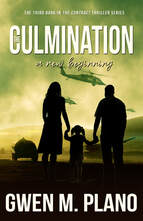
Earlier this week, I read a thought-provoking article on truth by author John Fioravanti. He reflected upon Miguel Angel Ruiz’s book The Four Agreements and specifically focused on this quote:
"Be impeccable with your word. Speak with integrity. Say only what you mean. Avoid using the word to speak against yourself or to gossip about others. Use the power of your word in the direction of truth and love."
I resonated with Fioravanti’s reminder that we have the ability to do much good or much harm – simply through our choice of words. Particularly during these election times, words are used indiscriminately and often to create realities that may not exist.
As I read his reflection (and I encourage you to do the same), I was brought back to my early years.
When I was a child, my father would frequently say to my siblings and me that, “You are only as good as your word.” He made it clear that our worth is tied to our word. Through stories and example, he taught us that titles, positions, or income mean little compared to our integrity.
As a product of the Dust Bowl, Dad knew the extremes of life, but he measured his life and that of others by the ability to be faithful to the spoken word. If he said he would do something (i.e., plow the field, fix a machine, or whatever), he would. And, he expected the same of his family and those with whom he worked. If we fell short in some way, Dad disciplined us.
Over time, I’ve wondered if there were a downside to my upbringing, because when just a child, I naively concluded that everyone strove to be honest. For years upon years, I believed what people said—in the newspapers, on television, or from the pulpit. I blindly trusted. Didn't you?
I see differently now; life has taught me to be more discerning of motivations. And while I try to be impeccable with my word, I don’t assume it of others. Especially in the political arena, I doubt most of what is said.
How about you? Has life taught you that trust is earned not given? Do you have thoughts about how we can build an environment more supportive of truth?








 RSS Feed
RSS Feed